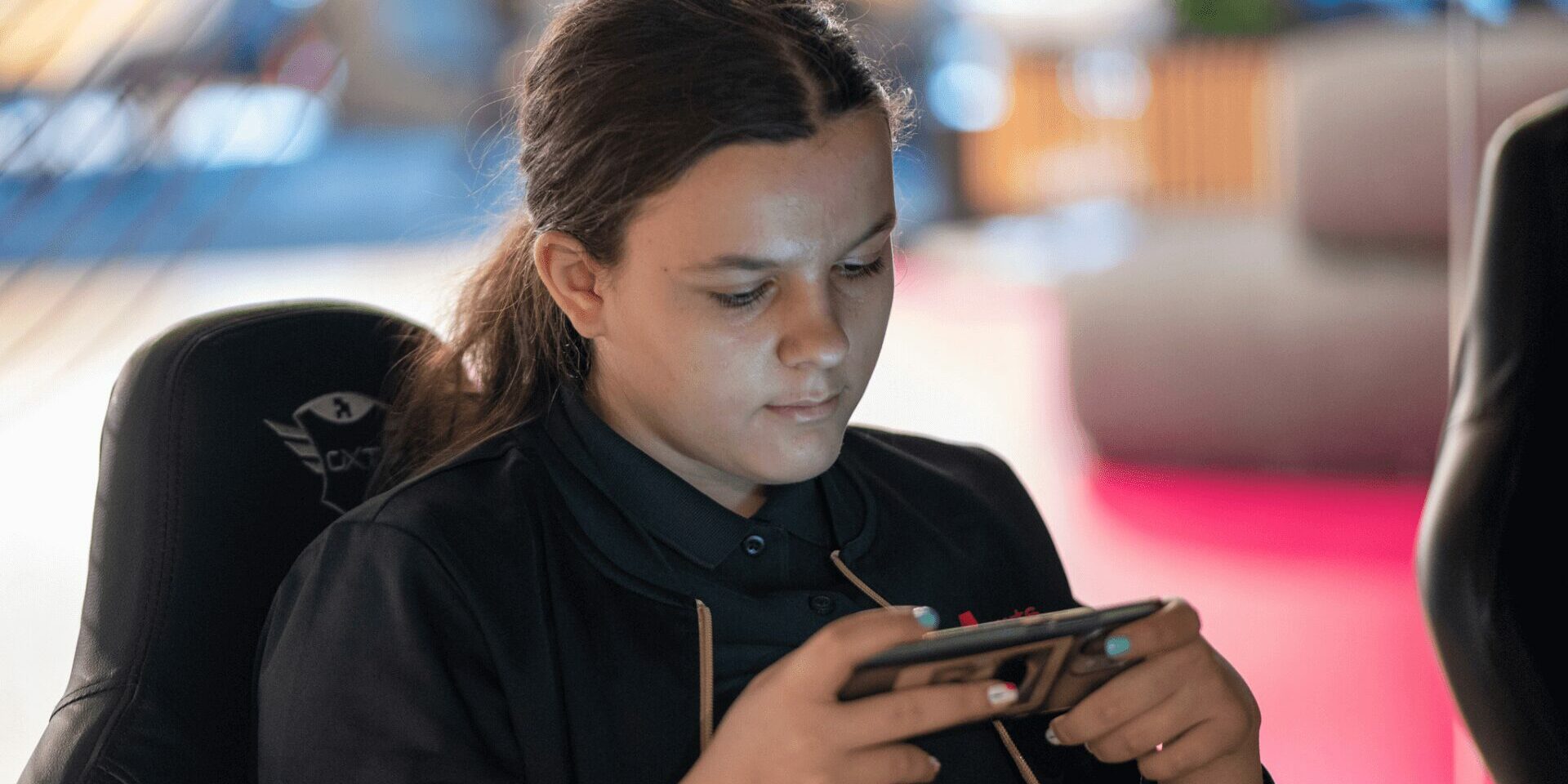Karina “Plantyse” Karachorova, a 17-year-old athlete from Bulgaria, is doing two completely different kinds of sports – fencing and esports. Karina is a Brawl Stars player and has been part of our #EQUALESPORTS program since 2022. She is convinced that fencing and esports are sports that have more in common than you might initially think.
How did you get into fencing and esports?
I got into fencing by coincidence. I watched TV in my grandparents’ village during the Olympic Games in Rio (2016). While switching through different channels, I stumbled on one where fencing was broadcasted. I immediately fell in love with this sport. When I woke up the next morning, I called my parents to tell them that I wanted to start fencing.
I got into esports during the Covid quarantine. I was stuck at home all day and started playing Brawl Stars more intensively. At some point, I saw that a local creator was organizing a tournament and wanted to take part in it. Little did I know back then, that this was just the beginning of all my adventures in Esports, which would eventually lead me here.
Are there similarities between fencing and esports?
Reflexes are probably the biggest similarity, because in both you need to react to what your opponent is doing in the timeframe of a millisecond.
There are also similarities in terms of strategy: You have to know when to attack, defend or wait patiently, depending on what your opponent is doing and planning to do.
Mental strength also plays a major role for both. You have to believe in yourself, maintain your concentration, stay focused at all times and always play to the end.
Which skills from fencing do you find useful for playing Brawl Stars?
The skills from fencing that I find useful are decision-making and the ability to react quickly. Fencing teaches you to react quickly to what your opponent does and to sense what your opponent wants to do. As strange as it sounds, this also helps a lot with drafting in Brawl Stars. If you can sense what your opponent is up to, you’ll be one step closer to winning the draft, which plays a big role in every game. It also helps a lot in deciding when to push or go back.
Fencing also gave me very quick reflexes. They help me punish my opponent’s mistakes the moment I see them and help me win a lot of games in both Fencing and Brawl Stars.
Are there any exercises or routines that are beneficial for both sports?
Before an important competition in either sport, I always try to relax as much as possible by listening to music or lying in bed with my eyes closed and imagining how I’m going to do really well. This helps me to calm my nerves before competitions and tournaments.
Have you developed special strategies to stay focused under pressure?
At one point in my life, when nothing was going the way I wanted it to, I started to underperform. At every competition I had the thought that I wanted to place in the top 3 and knew that I could do it, but there was always something missing. That was one of the most difficult phases in my life. Every day I had the thought of giving up and that I wasn’t good enough.
I overcame this with the help of a sports psychologist, who taught me how to stay focused under pressure and not let my thoughts get the better of me.
Today I can say that it was the best decision of my life to share my problems and separate myself from the toxic people in my life.
I would encourage anyone going through a tough time to talk to someone – it really helps!
In fencing, you compete alone against an opponent, while in esports the focus is usually on team play. Do you find it difficult to adjust to these different dynamics?
In the early years of my life, I always took part in individual competitions (mathematics, computer science, swimming, tennis, fencing) but for me, fencing is more of a team sport than an individual sport, as strange as that may sound. You always have your coach by your side and your teammates cheering you on. Even in training you always compete against a teammate, you simply can’t train alone.
Ever since I was little, I’ve always enjoyed taking the initiative and taking on a leadership role. I think that helped me a lot with Brawl Stars. When I first started competing in Bulgaria, I was very shy, but over time I showed my personality. To this day, people still call me “Shefkata”, which means “chief”. When I started playing in a team with people from outside Bulgaria, I was very shy. It took about a year and many conversations with my coach before I was finally able to show my true self. One of the most important things in this game is communication. Since I’ve become more vocal, I’ve achieved some great things.
What are your long-term goals?
My long-term goal in fencing is to take part in the Olympic Games.
While I’m still figuring out my bigger goals in terms of Brawl Stars, I’d say my current goal is to qualify for the monthly finals.
Homepage: https://www.equal-esports.com/en
